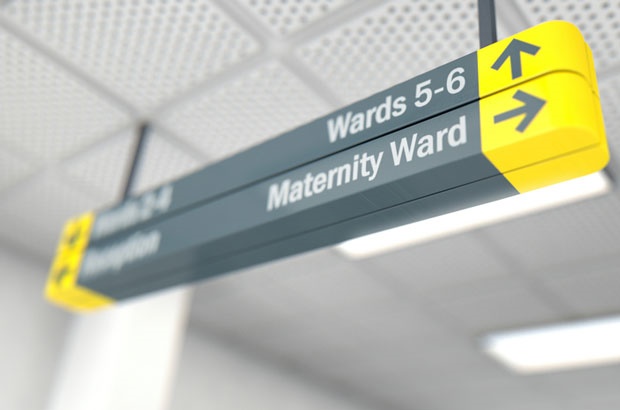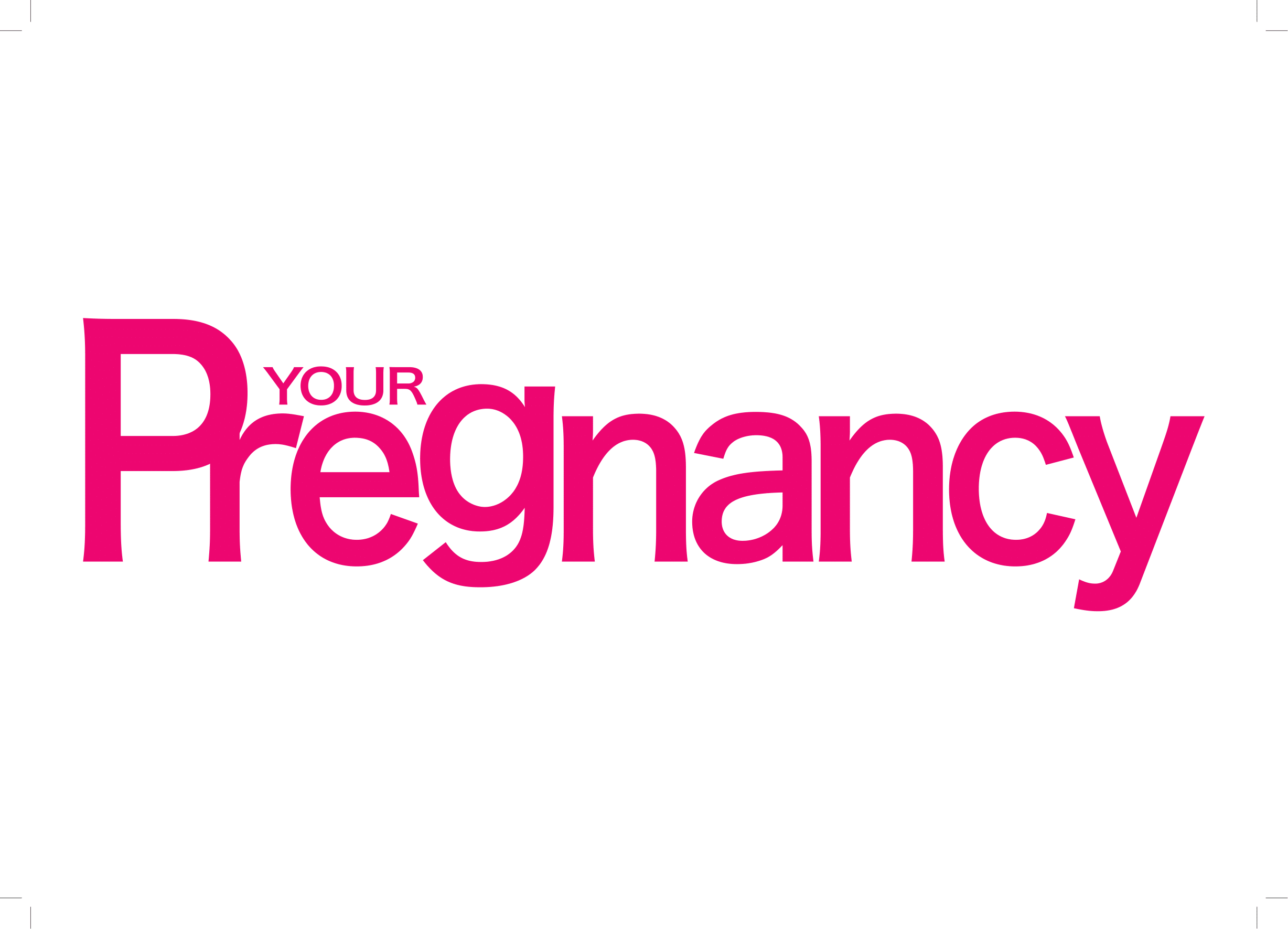
Pregnancy is one of those times when specialised medical care – whether your pregnancy has been deemed uncomplicated or high risk – is both necessary and frequent.
And folks, it ain’t cheap.
Thinking about going the private route? Emergencies aside, you're looking at a price range of about R16 000 to R46 050 depending on the birth method (figures based on Medi-Clinic Southern Africa estimates from 2016).
If, like many South Africans, you cannot afford private healthcare, you are more than entitled to government health care. Who knows? You and many others may be pleasantly surprised by the excellent quality of service.
But if you're worried about the bad reputation government hospitals are (sadly) known for, Norma Bustard, registered nurse/midwife and nurse manager of the Obstetric and Gynae block at the Charlotte Maxeke Johannesburg Academic Hospital in Parktown, explains why government hospitals get a bad name:
“People just don’t understand hospital protocol – especially when it comes to obstetrics,” she says. “The maternity unit has to cope with women who come to admissions in advanced labour who have not been for any antenatal care. This means that they have no medical records, and where there’s an additional language problem, it’s almost impossible to get an accurate obstetrical history.
"There is no time to run tests or do investigations that would otherwise improve the outcome for mother and baby. We simply have to do the best with what we have. When things go wrong, the press is quick to publish the story, often with incorrect details.”
Read: What is a birth plan?
But it doesn't have to be an unpleasant experience. Here are 5 things you need to know to prepare for your stay:
1. Booking your hospital bed
Book your hospital bed early – preferably at about 8 weeks into your pregnancy. Take your antenatal card (or referral letter from your doctor), ID, proof of residence, an employment certificate or other proof of income. If you are not working you need 3 consecutive current bank statements.
You will then receive a hospital appointment card along with your registration number and payment classification.
2. What services do government hospitals provide?
South Africa has 216 private hospitals with 28 000 beds, and 342 public hospitals with about 100 000 beds.
Government hospitals do supply food and linen
Registered nurse and midwife Nomonde Makhudu reassures women that government hospitals do supply linen and feed their patients!
“Of course you may bring your own pyjamas or night gowns, slippers and dressing gown, bath towels (if you prefer) and even your own pillows,” she says. “All patients are given a list of essentials that they must bring and these include clothes for the baby, blankets to take your baby home in, disposable nappies, cotton wool and surgical spirits as well as your own sanitary pads.”
The standard of cleanliness
The standard of cleanliness and the atmosphere of each maternity unit is dependant on the unit manager. Even in circumstances of poverty, many of these units are clean and orderly and there is a feeling of security and contentment amongst patients and staff alike.
In a “baby-friendly” environment, posters encourage breastfeeding, and midwives are helpful, offering support and breastfeeding advice. What the bathrooms lack in luxury is made up for in cleanliness and most importantly, the nursery is spotless despite the lack of lace and frills. Where you are satisfied with the service and nursing care, take the trouble to thank the staff (a box of chocolates says it all!) and do tell hospital management in writing.
If you have a valid complaint
If you have a valid complaint, it’s best to speak to the nurse manager. Keep in mind that government hospitals are busy places where the sickest are seen to first. You may find that if you don’t have any problems, you will have to look after your own baby (good preparation for going home) and be responsible for yourself. Your hospital stay may be as short as 4 to 24 hours or as long as weeks if there are complications.
Also read: 10 suggestions for writing your birth plan
3. Taking responsibility
Norma encourages all pregnant women to take responsibility for their health. “A pregnant woman needs to understand that if she has been referred to a specific hospital for follow-up, it is her responsibility to do so,” she says.
“There have been unnecessary, tragic incidents when women did not fully understand the implications of their conditions and failed to follow through at an academic hospital until it was too late.”
The importance of giving correct details
Norma also stresses the importance of giving correct detailssuch as ID number, street address and family contacts. “The clinic card is a legal document – these should not be changed or tampered with in any way,” she points out.
Women are also encouraged to stay with one antenatal clinic and not “clinic-hop”, miss appointments, change or swap appointments because this complicates administration – particularly when there are long queues.
Norma advises single women about NGOs and support groups and organisations available to help them. “We will help in any way we can, we can make arrangements to help the pregnant mom and her baby during her pregnancy so that she does not have to feel desperate enough after the birth to abandon her baby at the hospital.”
4. Special requests
Caesareans are done only when necessary
There is no need to document a “birth plan” because every midwife at a government hospital wants the best for you and your baby. “Natural birth” comes first and caesareans are done only when absolutely necessary.
Epidurals need to be discussed beforehand
Although pain relief is given when necessary, alternatives such as heat, massage, water and movement will be offered first. Epidurals should be discussed ahead of time because they are generally not standard.
Birth partner
All women are entitled to respect and privacy at all times. One birth partner may stay with you, and they may have to be your “spokesperson” (this also applies to private care).
Interesting read: Is your pelvis big enough for labour?
5. Basic rights as a patient of the hospital
Don’t presume that because the hospital is government-run, you will get inferior treatment. Many women praise government hospitals. According to Batho Pele, you have the right to:
- Consultation: you should be given a choice about the services offered.
- Service standards: insist that promises are kept.
- Access: one and all should get their fair share.
- Courtesy: don’t accept insensitive treatment, you should be treated with courtesy and consideration.
- Information: you are entitled to the full particulars at all times.
- Openness and transparency: you should understand how national and provincial departments are run.
- Redress: your complaints must spark positive action.
- Value for money: public services should be provided economically and very efficiently.
Have you recently given birth at a government hospital? What was your experience like? Tell us about it by emailing to chatback@parent24.com and we could publish your letter. If you want to stay anonymous do let us know.
Do you have a question about your pregnancy health that you'd like an expert's feedback on? Email to problems@yourpregnancy.co.za and we may publish your question along with advice from a specialist.
Please note that we cannot supply personalised advice.




 Publications
Publications
 Partners
Partners










